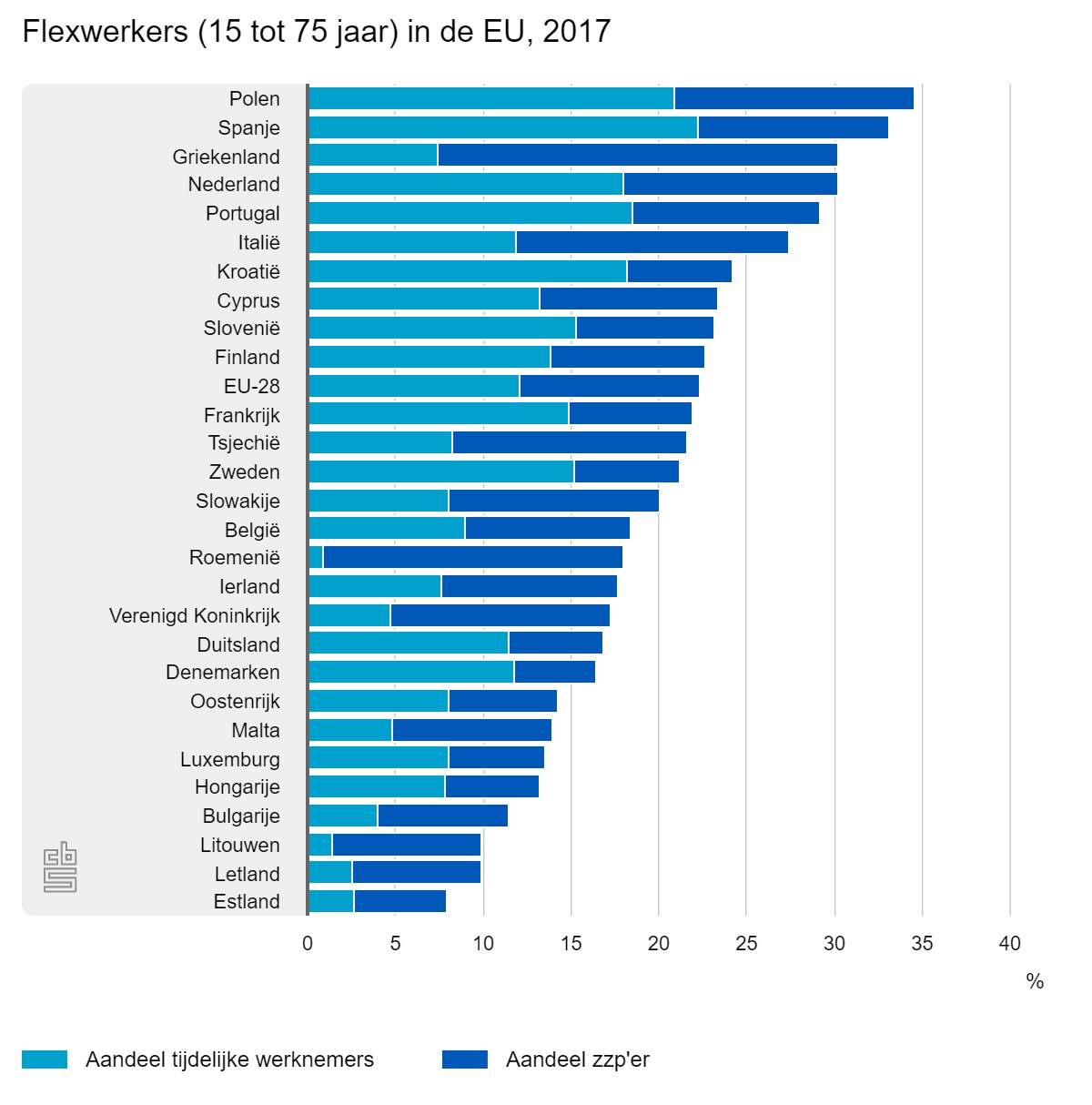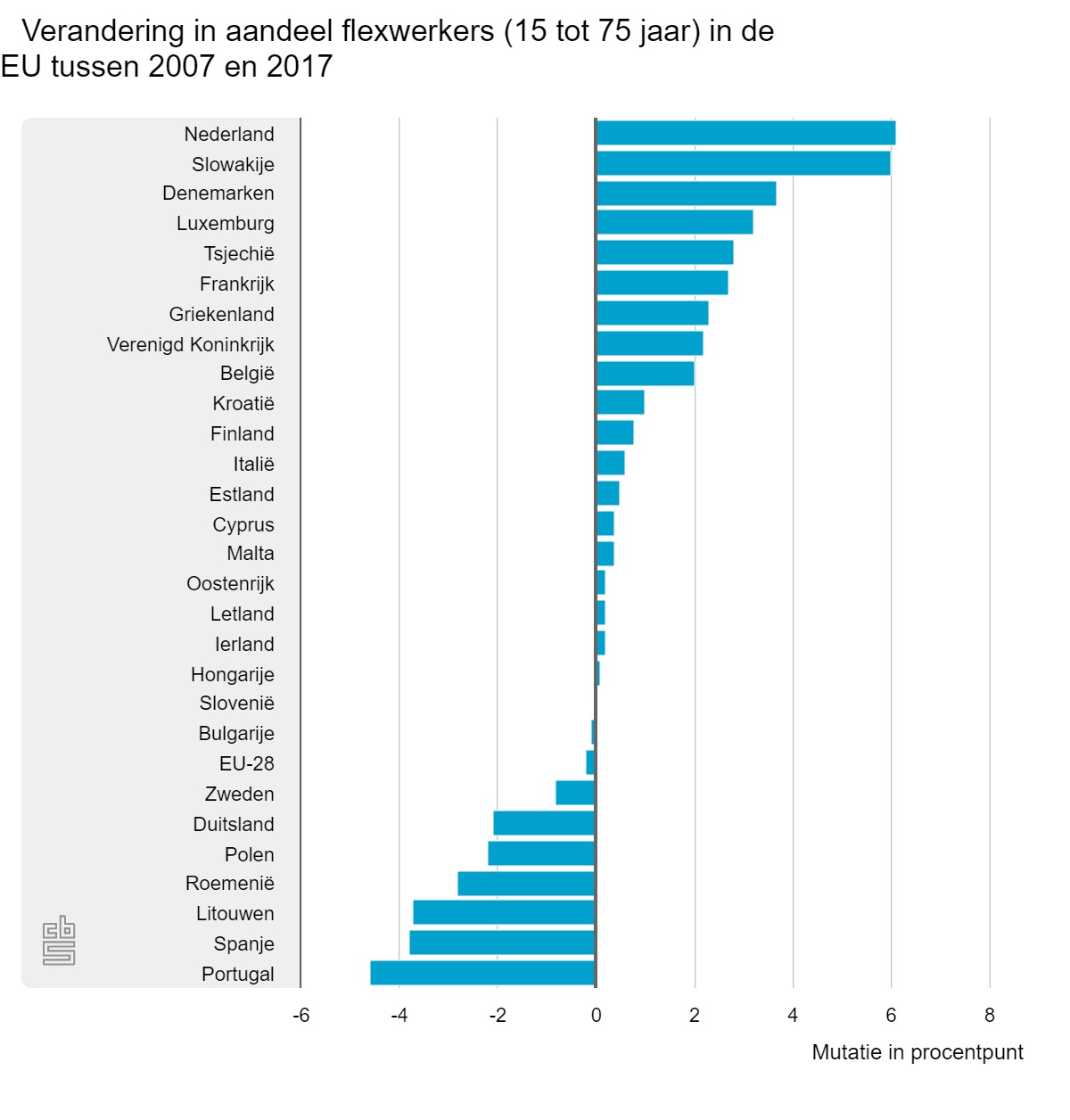Dutch MEP Agnes Jongerius recently tweeted that the Netherlands has the most flexible labour market in Europe.
Jongerius, MEP for the Labour Party (PvdA) speaks of a ‘flexible labour market’, but what is the exact definition? On March 2017 the University of Amsterdam published a report in which ‘flexible labour market’ is given an understandable definition: ‘’Flexible work includes all types of (paid) work that are not carried out in a permanent employment with a fixed working hours’’.
The Netherlands vs Europe
Even though the earlier named report gives a clear definition, there is still a difference between the Netherlands and other European countries. On 25 April 2019 the Central Bureau for the Statics (CBS), published their research about the flexible labour market in the Netherlands and Europe. This shows that the definition of a flexible labour market in the Netherlands may differ with the definition in other European countries: ‘’The difference is that the EU only looks at the contract. In the Netherlands both the contract and the contract hours are important.’’ This is why the EU-number in the Netherlands is lower than the CBS-number in the figures below. In the Eurostat figures for 2015 the Netherlands is ranked sixth.
 Flex workers in the EU. Source: CBS, 2017
Flex workers in the EU. Source: CBS, 2017
By using the Dutch definition, the CBS comes to the conclusion that in 2017 the Netherlands were the fourth country to have the most flexible labour market. Only Poland, Spain and Greece were ranked higher.
Despite being in fourth place, the Netherlands is the fastest growing country on the flexible labour market. The figure below shows that the Netherlands were between 2007 and 2017 the fastest growing country and that Poland and Spain even sank on the flexible labour market.

Growth in amount of flex workers in the EU. Source: CBS, 2017
Most flexible or not?
Following the research from the CBS, The Netherlands does not have the most flexible labour market in Europe, but the country is the fastest grower. The European countries with a bigger flexible labour market are even dropping on the flexible labour market index, whereby the Netherlands is likely to have the most flexible labour market in the future, provided that such growth persists.
Conclusion
Based on the most recent figures from the CBS, however, the claim by Agnes Jongerius: “The Netherlands has the most flexible labour market in Europe” is false.
Leave your comments, thoughts and suggestions in the box below. Take note: your response is moderated.
RESEARCH | ARTICLE © Linda Haars, Utrecht University of Applied Sciences, NL





